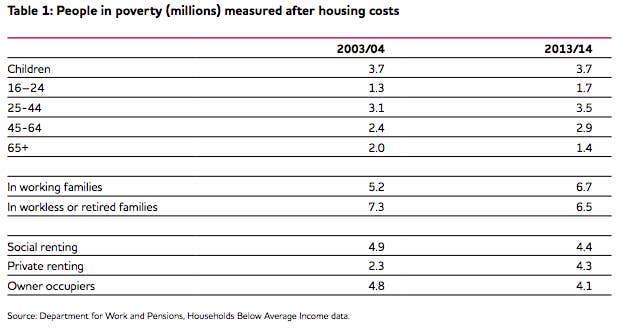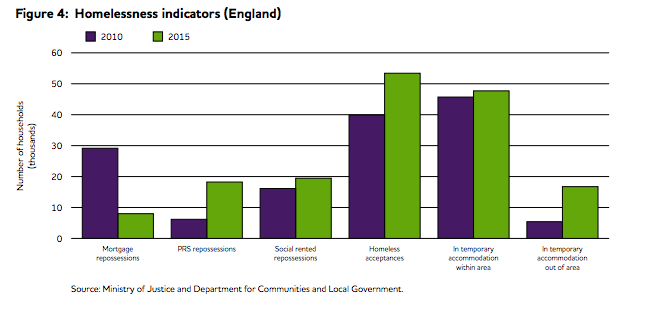A generation of young people is being "locked out of the opportunities they need to build a secure future", according to a new study which found a substantial rise in the number of 16-24-year-olds living in poverty.

The report by the Joseph Rowntree Foundation (JRF), published on Monday, found that 1.7 million people aged 16-24 are now living in poverty – an increase in more than 400,000 in the last 10 years.
There are now more young adults than over-65s living in poverty, with pensioner poverty falling by 600,000 to 1.4 million over the same period. This makes over-65s the only group to enjoy a decrease in poverty numbers.
JFC considered a person to be living in poverty if their household net income is less than 60% of the average household income for the year.
The average income for non-retired households in 2014/15 is £28,100, according to the Office for National Statistics.

Unemployment and a worsening shortage of genuinely affordable housing were key factors in limiting young people's prospects, the research found.
Young people are four times more likely to be out of work, the JRF said, with 16% of 16-24s are unemployed compared to 4% of the working population as a whole.
But a dramatic increase in housing costs for people in the bottom fifth of income distribution in any age group meant that employment wasn't always a ticket out of poverty for many.
51% of people were living below the poverty line, even in households where at least one adult was in work.
More people than ever in average and low-income families are spending a greater proportion of their income on housing than ever before.
The study found that the poorest fifth were spending over a third of their income on housing in 39% of households - an increase of 9% on 10 years ago.
Poorer-income households were also four times more likely than average-income houses to spend more than a third of their income on housing.
People renting privately were being hit the hardest, with those in the poorest fifth spending more than a third of their income on housing making up 78% of the private rental sector.
Another recent study found that the average rent in the UK is now almost £1000 per month.

“The next generation is being condemned to a worse set of circumstances in which to live, work and raise a family," chief executive of the JRF Julia Unwin said.
"This year's report reveals that a large proportion of young people are being locked out of the opportunities they need to build a secure future - a secure home, a job that pays the bills and the chance to get on in life."
Unwin praised the government for actions that have allowed poverty among the over 65s to fall, but said: "We need to see the same commitment to tackling the drivers of poverty among younger people, including low pay, unaffordable housing and difficulties entering into and progressing at work.
"There is an important role for businesses, employers, and local leaders, who must to work together if we are to eradicate poverty once and for all."
Tom MacInnes, the co-author of the report, said a prohibitive housing market is an increasing source of problems relating to poverty, including rising homelessness, rising evictions, increasing numbers of families housed in temporary accommodation.
In particular he blamed the private rented sector, "where a growing number of people in poverty, including over 1 million children, now live.
"This is the sharp end of the housing crisis," he warned. "Increasing the supply of secure, affordable homes across all tenures, is essential to eliminating poverty in the UK."

